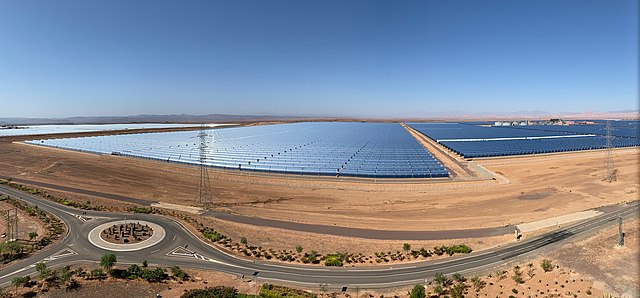Green Hydrogen Competition between Morocco and Algeria

The Russo-Ukrainian War has led the European Market to seek energy security providers elsewhere, particularly in North Africa, to halt energy dependency on Russia. The EU mainly approached Algeria and is planning to receive mostly this country's gas, through Italy as an intermediary. [Source] Algeria aims to maximize its energy exports and diversify its energy sources and economy beyond hydrocarbon output. [Source] Likewise, neighbouring Morocco, is implementing an ambitious investment plan toward developing renewable energy. The country's main focus is set on Green Hydrogen development. [Source] The recent resurge of tensions between the two countries over the question of Western Sahara's self-determination may hamper energy development, especially for Morocco. [Source]
KJ-1: It is highly likely that Morocco and Algeria will continue to develop Green Hydrogen capabilities, increasing economic competition amid rising tensions over Western Sahara.
A.
The International Renewable Energy Agency (IRENA) ranks Morocco in the top five nations worldwide with the potential for competitive green hydrogen production. [Source] [Source] The OCP Group's new investment plan and an agreement with Belgian company John Cockerill promise significant acceleration for Morocco's ambitious green energy transition. [Source] [Source] B. In late 2022, the EU and Morocco signed a Green Partnership to bolster renewable energy cooperation. [Source] Later in the same year, Morocco built its first green hydrogen production facility.
Thus, the country is aiming to position itself as a prospective exporter of affordable renewable energy to the EU. [Source] C. In the meantime, Algeria wants to position itself as Morocco's main competitor to become the main Green Hydrogen supplier for the EU.
Correspondingly, several Algerian officials defend Algeria's capabilities to cover Europe's Green hydrogen demands. [Source] D. Sonatrach, the main Algerian oil company, has recently signed a Memorandum of Understanding with two German firms to collaborate on green energy projects. [Source]
KJ-2: It is likely that Algeria's neutrality towards the War in Ukraine will hinder EU-Algeria relations, likely giving Morocco the upper hand in North African renewable exports to the EU.
A.
Despite furthered economic ties between Europe and Algeria, Algerian president, Abdelmadjid Tebboune, manifested the country's intentions of remaining neutral in the Russo-Ukranian conflict. [Source] B. During the War, Argelia carried out joint military exercises with Russia, which deeply concerned members of the EU Parliament (MEPs). [Source] [Source] Several MEPs then requested a review of the EU association agreement with Algeria in response.
C. Contrarily, Morocco has recently taken a stance in the War in Ukraine, by planning to deliver 20 T-72B battle tanks Tanks to Ukraine's defence. [Source] Rabat's moves towards Ukraine aim to alleviate recent political tensions with the EU, due to Qatargate corruption scandals and EU Parliament criticism of free speech in Morocco. Rabat's move seemingly aims to counter Argelia's newly found economic proximity to the EU. [Source]
KJ-3: Intensification of the Western Sahara conflict will highly likely hinder Morocco's economy, likely offsetting its Green Hydrogen development.
A.
Tensions in Western Sahara are on the rise, as can be seen by the Algeria-backed Polisario Front recently beginning discussions on leadership. [Source] B. Disagreement over Western Sahara caused a diplomatic crisis between Germany and Morocco in 2021.
This slowed down german investments in renewable energy projects in the North African Country. [Source] C. Morocco's 2023 Finance Bill set a military budget of nearly 11 million dollars. [Source] Violence intensification in Western Sahara would likely strain the funds allocated toward defence. [Source] Moreover, it would hinder foreign investments in Green Hydrogen development.
Intelligence Cut-Off Date: 21 March 2023